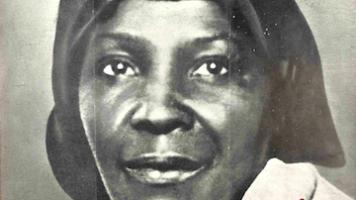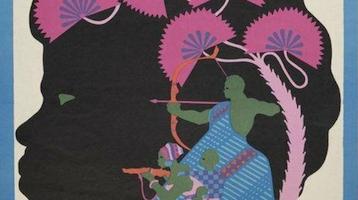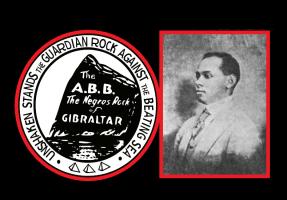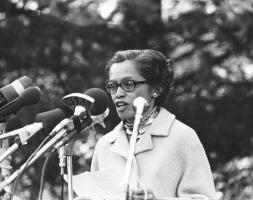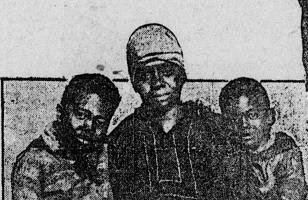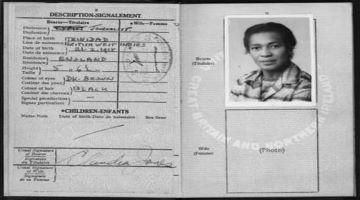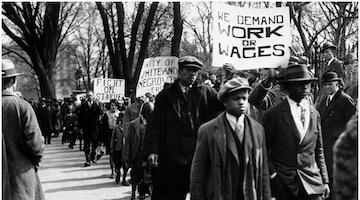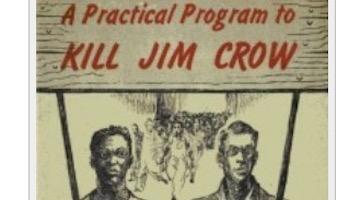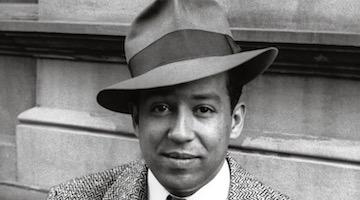Some of the best leaders of black working class people were communist or worked alongside communists.
“Communist history is foundational to black radicalism in the 20th century.”
In this series, we ask acclaimed authors to answer five questions about their book. This week’s featured author is Margaret Stevens. Stevens is Professor of History at Essex County College in New Jersey. Her book is Red International and Black Caribbean: Communists in New York City, Mexico and the West Indies, 1919-1939.
Roberto Sirvent: How can your book help BAR readers understand the current political and social climate?
Margaret Stevens: The primary political critique in the book is that during the 1920s and 1930s workers were ready and willing to collaborate and unite along lines of class unity to a way larger extent than the communist movement was then ready to lead and, moreover, that the idea of workers’ power and socialism was not one that was inherently foreign to Caribbean workers such that the mass organizations led by communists at times hindered rather than intensified the spread of revolutionary consciousness. Today, it seems the vast majority of people are pretty clear that capitalism is not the best of all possible worlds for humanity’s future, and yet, the notion that communism and workers’ revolution is a viable alternative is also near absent from general consciousness. Therefore, many are boxed into ultra nationalism all over the world, exceeding individualism and an overall sense of powerlessness to change the current historical picture. I see this in the youth I teach in Newark, New Jersey at my college. This book helps to give us not only a sense of “other options” that black and Latino working-class people in the Caribbean and US considered in the earlier twentieth century, but also the way activism and fight back were prevalent in the absence of fan-based social media platforms. It also helps show how some of the best and strongest examples of workers’ power and the fight against racism were only possible through the unity of all races and workers from across national divides and under the leadership of revolutionary communists aligned with the Soviet Union.
What do you hope activists and community organizers will take away from reading your book?
People will take away from this book a history that has been forgotten by some, ignored by others, and more important, hidden by the dominant ideologues of bourgeois capitalism. This history remains a threat to the ruling classes of the world because it shows that some of the best leaders of black working class people in the fight against racism and colonialism were communist or worked alongside communists. It goes further, however. The book demonstrates leaders like Bustamante and Manley in Jamaica, Cheddi Jagan and later Wlater Rodney in Guyana, Castro in Cuba, were all impacted directly or indirectly by the pioneering efforts of revolutionaries in the 1920s and 30s, many of whom were communists. The book also shows that organization history, not history based around individuals, is one of the best ways to demonstrate how revolutionary change has occurred.
We know readers will learn a lot from your book, but what do you hope readers will un-learn? In other words, is there a particular ideology you’re hoping to dismantle?
Individuals are subordinate to collectives and organizations when it comes to major historical change. When I say subordinate, I don’t mean less influential. King was more influential than say the SCLC, but he would never ever have become King if it weren’t for the organizations in place that provided the momentum from which he emerged. We do young people a disservice, I think, by removing significant leaders from the actual fighting organizations that was the muscle of their power.
Who are the intellectual heroes that inspire your work?
First and foremost, my mother, Barbara Foley, is the most significant intellectual “hero” for lack of a better term, to influence my work. She first showed me as a child how important it is to historicize one’s ideas and to conduct close readings and create a clear thesis. This seems perhaps elementary to some, but as a teacher in urban America today, I can tell you that this skill is lacking in 90% of the population (at least). She more specifically showed me how using Marxist analysis in the form of dialectical—actually historical—materialism is critical to creating a strong, clear, worthy project of intellectual enquiry.
Second, Tony Bogues and Paget Henry at Brown University, along with Bob Lee also at Brown, all found my interest in the “red line” of history with respect to black workers in the Caribbean fascinating and supported my efforts early on. And each of them had an approach—whether it be Bogues on the “human,” Henry on the mechanics of how socialism might function in real time, or Lee on the ways Asian-American radicalism was a transnational process from the beginning—that helped lay the foundation for how this project was mapped first as a thesis and later my book.
“Gerald Horne more than anyone showed me what the work of a radical, antiracist historian looks like.”
Finally, scholars outside of Brown had a huge impact. First, Robin Kelley, and later, and most significantly, Gerald Horne. It is Horne more than anyone who showed me what the work of a radical, antiracist historian looks like and requires in the 21st century. He is the most prolific historian, I would argue, that has emerged since since Aptheker and DuBois. That he was my mentor was critical to not only my early writing style and tone, but more significantly, my commitment to showing that communist history is foundational to black radicalism in the 20th century. I can’t fail to mention that faculty and colleagues in the Caribbean, particularly at the University of West Indies, Mona campus, in Jamaica, were critical to my sensitivity around not confusing communist party history with the history of radical black workers in the Caribbean.
In what way does your book help us imagine new worlds?
This book about the past could not have been written in the present if I didn’t already have a radical imagination about the future. So in a way, the best way to approach this question is to invert it: my vision of what remains possible in many ways informed what I have the ability to look for and pull together into a narrative about the past. However, the book in turn moved me forward in terms of the creativity and courage needed to build my own activism today. In particular, there are three things that the contradictions of the past movement as described in this book allow us to learn for the future:
* Workers around the world are more convinced of the need for a world without borders than they and we (as activists) often think. Even though West Indians turn out in droves in their national flags and colors for Carnivals, many West Indian workers are ready at the drop of a dime to unite with one another and workers from the US, Europe, Africa, and Asia, to challenge the ineptness, greed and corruption of native elites in each land. Workers in Puerto Rico might be more interested in independence than ever in the aftermath of the US's neglect of the Maria hurricane disaster, but this does not mean they are not open to international solidarity for protests and a larger movement that advocates for workers’ power across borders. They just haven't been introduced to the concept.
“Many West Indian workers are ready at the drop of a dime to unite with one another and workers from the US, Europe, Africa, and Asia.”
* The future for humanity’s progress most likely won’t and possibly can’t emerge from western metropoles or nations. In other words, workers in Bangladesh, Haiti, Cameroon, the Philippines, are in a way better positioned to see and understand the effects of global capitalism and the need for a world without money than workers in the Europe, the US or other regions where the centers of finance capital emanate.
* Women will more than likely be critical to the leadership, theoretical framing, and development of future revolutionary change. Of course women always have been, but I mean they will be consciously more part of the leadership of the process—or else we will fail once again. Overturning sexism, in other words, will be critical in the next wave of human revolutionary change—as I see it!
Roberto Sirventis Professor of Political and Social Ethics at Hope International University in Fullerton, CA. He also serves as the Outreach and Mentoring Coordinator for the Political Theology Network. He is co-author, with fellow BAR contributor Danny Haiphong, of the forthcoming book, American Exceptionalism and American Innocence: A People’s History of Fake News—From the Revolutionary War to the War on Terror.
COMMENTS?
Please join the conversation on Black Agenda Report's Facebook page at http://facebook.com/blackagendareport
Or, you can comment by emailing us at comments@blackagendareport.com

